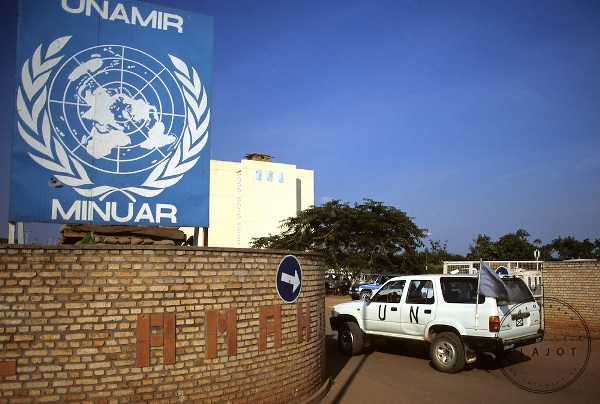
By Dr BIZIMANA Jean Damascène*
On May 31, 1994, a UNAMIR senior officer from Senegal, Captain Mbaye Diagne, was killed in a bomb blast at a roadblock controlled by the government soldiers and the Interahamwe. He died while refusing to allow Interahamwe to send out of UNAMIR trucks the refugees evacuated from Hotel des Mille Collines to the RPF-INKOTANYI-controlled area whom he was accompanying.
The next day, June 1, 1994, UNAMIR announced that it had suspended the evacuation operation as long as the roadblocks were not removed from roads and that the government soldiers and Interahamwe had not stopped interfering with UNAMIR’s work.
The actions of the government forces and Interahamwe to impede the relocation of people to the RPF-INKOTANYI-controlled area, allowed the killers to continue the genocide against the Tutsi who were still hiding in Kigali. The Tutsi killed on these dates could have been rescued sooner if the so called saviours’ government had complied with the agreement between the RPF-INKOTANYI and the government’s military leadership to let UNAMIR relocate people to their desired area.
On the same day, various international radio stations, including Radio France Internationale (RFI), British Broadcasting Corporation (BBC), Voice of America and Voice of Germany (Deutsche Welle), announced the contents of UNAMIR’s declaration concerning the investigation into the assassination of Tutsi in Kabgayi camps.
In the declaration, UNAMIR clarified that its envoys to the Kabgayi camp were aware of reports that some Tutsi had been evacuated from the camp and killed by the Interahamwe and the saviours’ government army. UNAMIR explained that its envoys were also able to find some of the bodies of killed people but refrained from disclosing much about the number of casualties. Nevertheless, reports from the media and international non-governmental organizations like the ICRC and OXFAM which operated in the camp had said that more than five hundred (500) people had been killed in a very short period of time.
Also today, the Minister of Defense of Canada arrived in Rwanda to assess the welfare of the Canadian Armed Forces in UNAMIR and analysing how Canada would send about three hundred communications experts in Rwanda. Canada had agreed to deploy communication experts in Rwanda in the context of strengthening the second UNAMIR II mandated by the United Nations to increase its troops and other UNAMIR staff.
The VOA news reported that Egypt had sold arms to the Saviours’ Government worth seven hundred and fifty thousand USD ($ 750,000), in violation of a UN Security Council resolution. The United Nations had banned all countries from selling weapons to the Rwandan government and its forces for its role in the Genocide against the Tutsi. (End).
* Dr BIZIMANA Jean Damascène, Executive Secretary National Commission for the Fight Against Genocide (CNLG)
